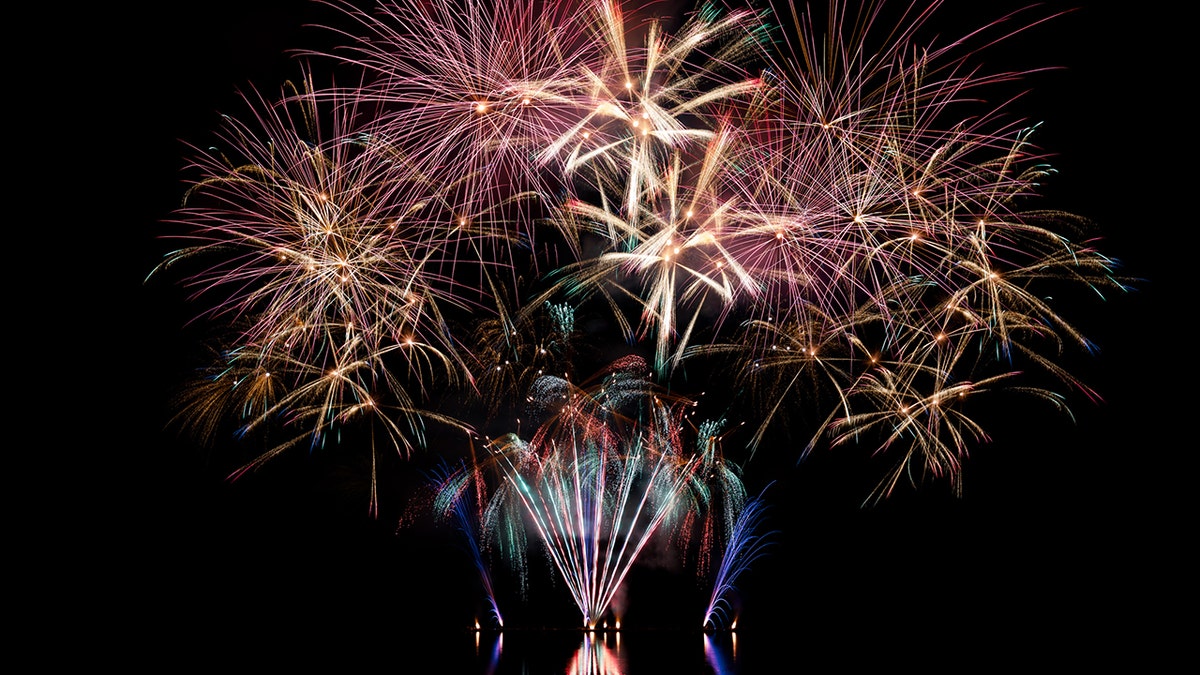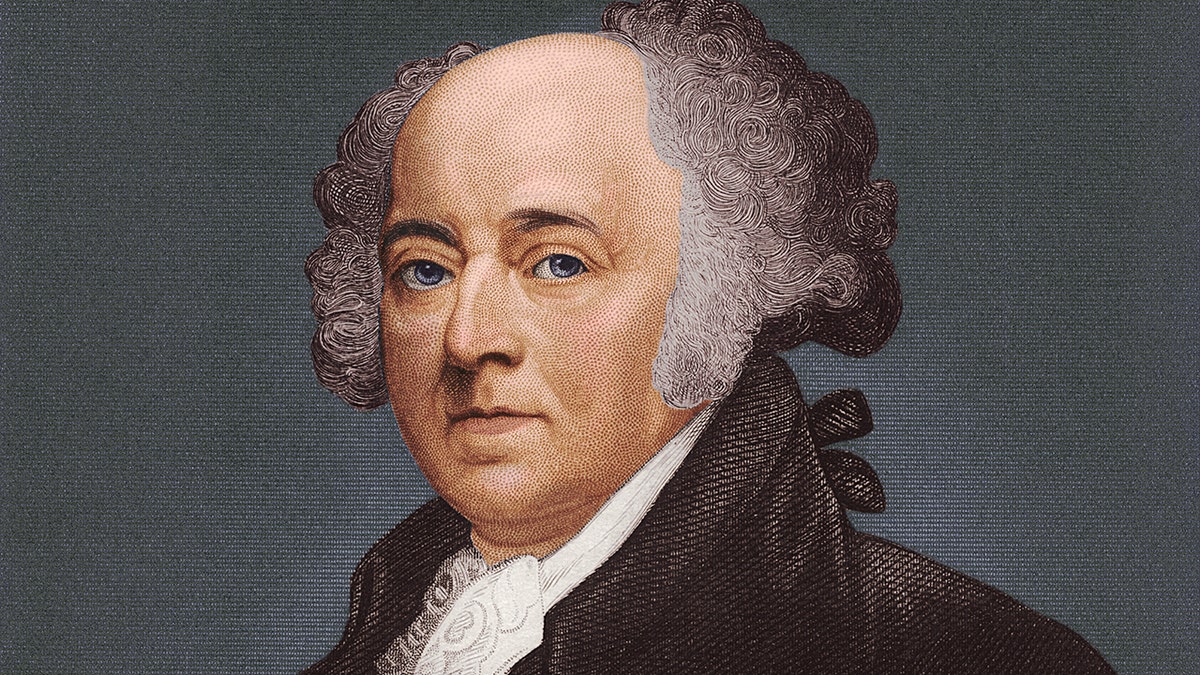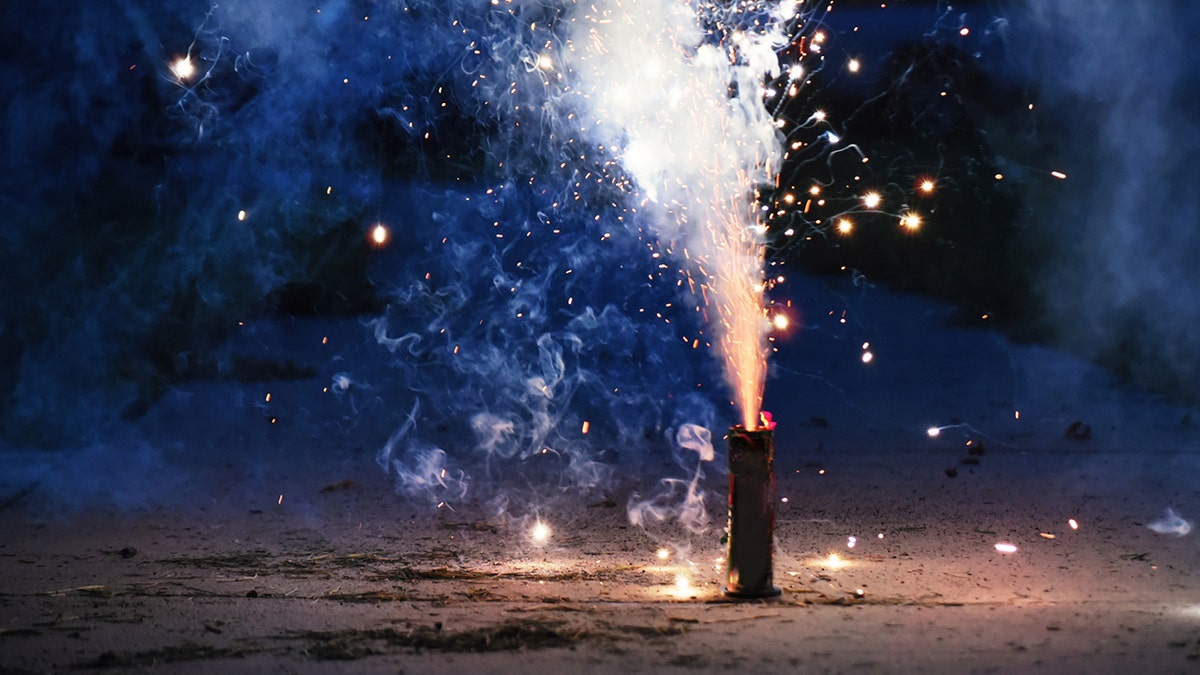‘IT MEANS FREEDOM’: Americans share what Fourth of July means to them
Americans walking along the National Mall in the nation's capital share what it means to be an American ahead of Independence Day celebrations.
Fireworks are always a staple of our Fourth of July activities in America.
Ask most people what they are doing for the Fourth of July, or leading up to it, and fireworks are likely somewhere on the agenda.
However, ask if they know where this tradition began — and they may not know the answer.
PREPARE FOR YOUR FOURTH OF JULY PARTY EARLY WITH THESE ITEMS
The vision for the celebratory tradition is far from new.
It actually officially dates to America's earliest days.

Fireworks are one of many Fourth of July traditions. The annual lighting of fireworks is not a new staple. The tradition has deep roots that date all the way back to America's first Independence Day. (iStock)
Here is a look back at the history of Fourth of July fireworks ahead of the holiday.
- When did fireworks become popular for the Fourth of July?
- What is the history of the fireworks tradition?
- What actually happened on July 4, 1776?
- In what other ways is the Fourth of July celebrated today?
1. When did fireworks become popular for the Fourth of July?
On July 4, 1776, the United States declared its independence from Great Britain.
The following year was when the first official Independence Day celebrations took place in Philadelphia, which, of course, included fireworks illuminating the sky.
"The evening was closed with the ringing of bells," the Evening Post reported on July 5, 1777. "At night there was a grand exhibition of fireworks (which began and concluded with thirteen rockets) on the Commons, and the city was beautifully illuminated."
Since then, the tradition has stuck with Americans for the holiday.
2. What is the history of the fireworks tradition?
In 1776, future President John Adams imagined – in a letter to his wife, Abigail – that a sparkling sky would honor the 13 soon-to-be-independent colonies every year from that point onward.
JULY 4TH QUIZ! HOW WELL DO YOU KNOW YOUR FACTS ABOUT INDEPENDENCE DAY?
The man who would become the second president of the U.S. wrote, in part, on July 3, 1776, "I am apt to believe that it will be celebrated, by succeeding Generations, as the great anniversary Festival.
"It ought to be solemnized with Pomp and Parade, with Shews, Games, Sports, Guns, Bells, Bonfires and Illuminations from one End of this Continent to the other from this Time forward forever more," according to the National Archives.

John Adams predicted the celebrations that would come after the adoption of the Declaration of Independence in a letter to his wife, Abigail. (Stock Montage/Getty Images)
Although Adams was off by a couple of days, he was not wrong about the fanfare that would come.
Just one day later, on July 4, 1776, the Declaration of Independence was adopted by delegates to the Second Continental Congress in Philadelphia.
CLICK HERE TO SIGN UP FOR OUR LIFESTYLE NEWSLETTER
While some public recitations of the Declaration of Independence were greeted with "impromptu celebrations" from local militia in Pennsylvania and New Jersey on July 8, a formal pyrotechnics display would not light up the sky for another year, according to History.com.
3. What actually happened on July 4, 1776?
On July 4, 1776, the Declaration of Independence was adopted by the Second Continental Congress.
This meant the 13 colonies were independent of Great Britain.
This led to the creation of the United States of America.
For more Lifestyle articles, visit www.foxnews.com/lifestyle
Now, every year on July 4th, those around the country commemorate the Declaration of Independence.
4. In what other ways is the Fourth of July celebrated today?
Today, fireworks are not limited to the Fourth of July. There are fireworks displays happening around the country that take place in the days leading up to Independence Day as well.

If you're going to be lighting fireworks this July 4th, make sure to ignite them safely, as they are a common cause for injury on the holiday. (iStock)
Many also choose to ignite their own fireworks for the Fourth of July. If you choose to do so, make sure you are following proper safety precautions to avoid potentially fatal injury.
CLICK HERE TO GET THE FOX NEWS APP
The day is marked with other festivities such as parades, barbecues and block parties with family, friends and neighbors.
The Associated Press, along with Janine Puhak, contributed reporting.


